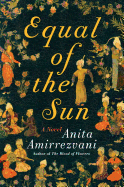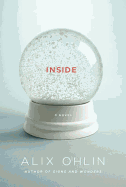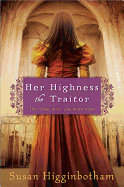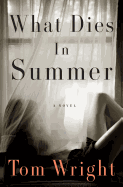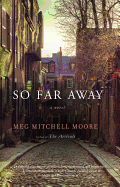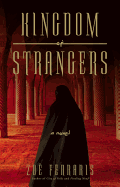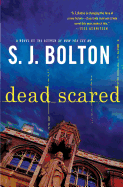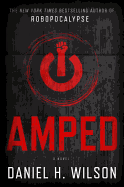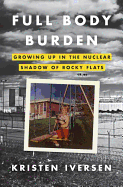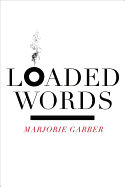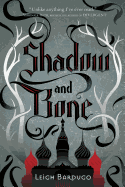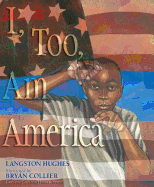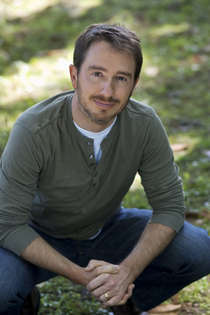 Wiley Cash is the author of A Land More Kind Than Home (Morrow). The novel tells the story of the bond between two young brothers and the evil they face in a small North Carolina town. A native of North Carolina, Wiley and his wife live in Morgantown, W.Va. This is his first novel.
Wiley Cash is the author of A Land More Kind Than Home (Morrow). The novel tells the story of the bond between two young brothers and the evil they face in a small North Carolina town. A native of North Carolina, Wiley and his wife live in Morgantown, W.Va. This is his first novel.
On your nightstand now:
I have advance copies of both Shine, Shine, Shine by Lydia Netzer and Billy Lynn's Long Halftime Walk by Ben Fountain. I'm really enjoying them, and I think they'll both be big books by two very talented writers. Because they're advance copies, I feel like I know a secret that a lot of other folks don't know yet.
Favorite book when you were a child:
The earliest book I remember reading and having read to me was a Star Wars book for young readers. It was accompanied by an audiotape that included a narration and sound effects taken from the film. I listened to that tape and flipped through that book relentlessly. One evening, as my mom began to read it to me, I asked her if I could read it. I picked it up and read the entire thing. She was shocked because I was only four, and I hadn't yet learned to read. Turns out that I hadn't learned; I'd just memorized the audiotape. I even made a ding sound when it was time to turn the page. My rise from "normal" to "exceptional" lasted about three minutes, but they were glorious.
Your top five authors:
This is pretty tough. I'll give it a shot by listing the top five Southern authors whose work has affected me the most: Ernest J. Gaines, Thomas Wolfe, Jean Toomer, Flannery O'Connor and William Faulkner.
Book you've faked reading:
I'm glad you only asked for one book because there are actually several dozen.... The summer of 2011 was supposed to be my summer of "Books I Haven't Read or Books I've Lied About Reading," but I managed only to read a couple before moving on to books I found more interesting. But that summer I actually read Winesburg, Ohio by Sherwood Anderson, which I loved. But the book I've faked the most is probably Herman Melville's Moby Dick. Here I'll attempt to quote Jerry Seinfeld: "It's like the sun. I look long enough to get a sense of it, and then I look away." I bet I just offended a lot of literary folks out there.
Book you're an evangelist for:
Over the past year, I've been an evangelist for two books: Chad Harbach's The Art of Fielding and Karl Marlantes's Matterhorn. As a reader, I'm someone who reads for a sense of place and I'm interested in how that place affects characters. While these books are very different--The Art of Fielding takes place on a small college campus and Matterhorn in the jungles of Vietnam--their settings were both very real to me, and as a result, the characters were very real as well. I missed them when the books were over.
Book you've bought for the cover:
One book was The Selected Works of T.S. Spivet by Reif Larsen. I bought it for the front cover, the back cover and all the pages in between; it's beautiful. Another book was The Book of Basketball by Bill Simmons. The cover said "basketball" and "Bill Simmons," so I bought it. It's fascinating.
Book that changed your life:
Toni Morrison's Song of Solomon really changed my life. I read this book the summer after my freshman year of college when I was going through a particularly difficult time. I read it in just a couple of days, and when I finished I immediately read it again. In that novel, Morrison creates a palpable world and peoples it with characters you come to know and believe in as if they exist outside the book. I was so thankful that she gave me refuge where I could hide from my own world during that time. It made me want to be a writer so I could offer people the same thing.
Favorite line from a book:
The final line of Thomas Wolfe's Look Homeward, Angel:
"Yet, as he stood for the last time by the angels of his father's porch, it seemed as if the Square already were far and lost; or, I should say, he was like a man who stands upon a hill above the town he has left, yet does not say 'The town is near,' but turns his eyes upon the distant soaring ranges."
That line changes my life every time I read it.
Book you most want to read again for the first time:
One is Bobbie Ann Mason's In Country. I'm a child of the 1980s, but at the time I wasn't quite old enough to be aware of the societal and cultural repercussions of the Vietnam War. This book made both of those very clear to me. And the final scene? While reading that I was sitting by a pool with my mother-in-law in Las Vegas. I was weeping uncontrollably, but I kept trying to hide it. She was like, "What's wrong with you?" I think I told her I had sunscreen in my eyes. And then I kept weeping.
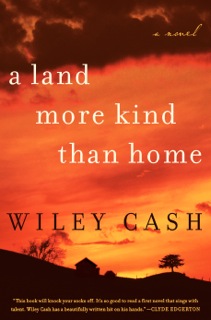 Your feelings on your book jacket:
Your feelings on your book jacket:
I absolutely love my book jacket, and if I ever have the chance to meet Mary Schuck, the designer, I'm going to buy her a beer or some flowers or a big cake that says, Thank You! I've heard horror stories about authors hating their covers, and I was nervous that one day I'd be telling a similar story. After my editor called and said he was e-mailing the jacket to me, I got off the phone and went into the kitchen and knocked back a beer before checking my e-mail with shaking hands and a pounding heart. Turns out I should've saved that beer to celebrate. A friend of mine said, "Your book jacket makes me feel homesick and scared at the same time." That's exactly how I want readers to feel after they've finished A Land More Kind Than Home, so I suppose William Morrow got the design just right.
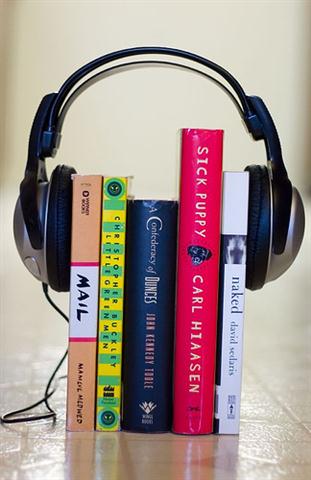 When I was a bookseller, customers occasionally asked if I thought audiobooks counted as "real reading." I do. Absolutely. In a 1953 interview in Harper's magazine, Raymond Tierstein, founder of the Audio Book Company, made the best case for audioreading I've ever heard: "Like to listen to a little bit of The Iliad? You know it was meant to be spoken in the first place." We've been telling each other stories for a long time.
When I was a bookseller, customers occasionally asked if I thought audiobooks counted as "real reading." I do. Absolutely. In a 1953 interview in Harper's magazine, Raymond Tierstein, founder of the Audio Book Company, made the best case for audioreading I've ever heard: "Like to listen to a little bit of The Iliad? You know it was meant to be spoken in the first place." We've been telling each other stories for a long time.



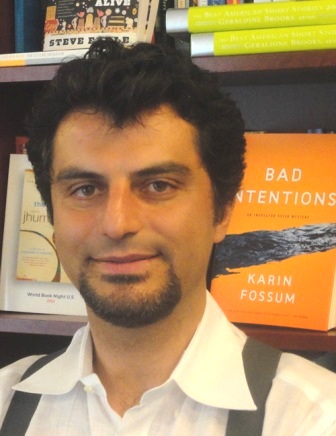 Enrico Moretti first became interested in economics as a high school student with a passion for environmental policy, drawn to the field's practical nature and real-world relevance. "Making an argument based on moral grounds is useful," he said, hanging out in the offices of Houghton Mifflin Harcourt during a recent visit to New York City. "But being able to make an argument based on economic grounds is even more useful."
Enrico Moretti first became interested in economics as a high school student with a passion for environmental policy, drawn to the field's practical nature and real-world relevance. "Making an argument based on moral grounds is useful," he said, hanging out in the offices of Houghton Mifflin Harcourt during a recent visit to New York City. "But being able to make an argument based on economic grounds is even more useful."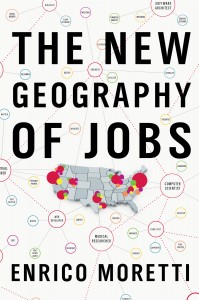 The problem is that these factors are not distributed evenly across the United States. As a result, Moretti warned, "we're not just one nation, we're several nations, and we're drifting apart." Education reform is one solution to this "Great Divergence," but it's not enough. (Consider Santa Barbara, for example: great universities, a perfect climate and an excellent cultural scene, but, he notes, "an economy that hasn't generated any jobs outside tourism in decades.") Local economies need to learn how to be flexible, to adjust as industries wax and wane. Otherwise, he said, they could meet a fate similar to Rochester, N.Y., or Detroit, Mich.
The problem is that these factors are not distributed evenly across the United States. As a result, Moretti warned, "we're not just one nation, we're several nations, and we're drifting apart." Education reform is one solution to this "Great Divergence," but it's not enough. (Consider Santa Barbara, for example: great universities, a perfect climate and an excellent cultural scene, but, he notes, "an economy that hasn't generated any jobs outside tourism in decades.") Local economies need to learn how to be flexible, to adjust as industries wax and wane. Otherwise, he said, they could meet a fate similar to Rochester, N.Y., or Detroit, Mich. Wiley Cash
Wiley Cash Your feelings on your book jacket:
Your feelings on your book jacket: